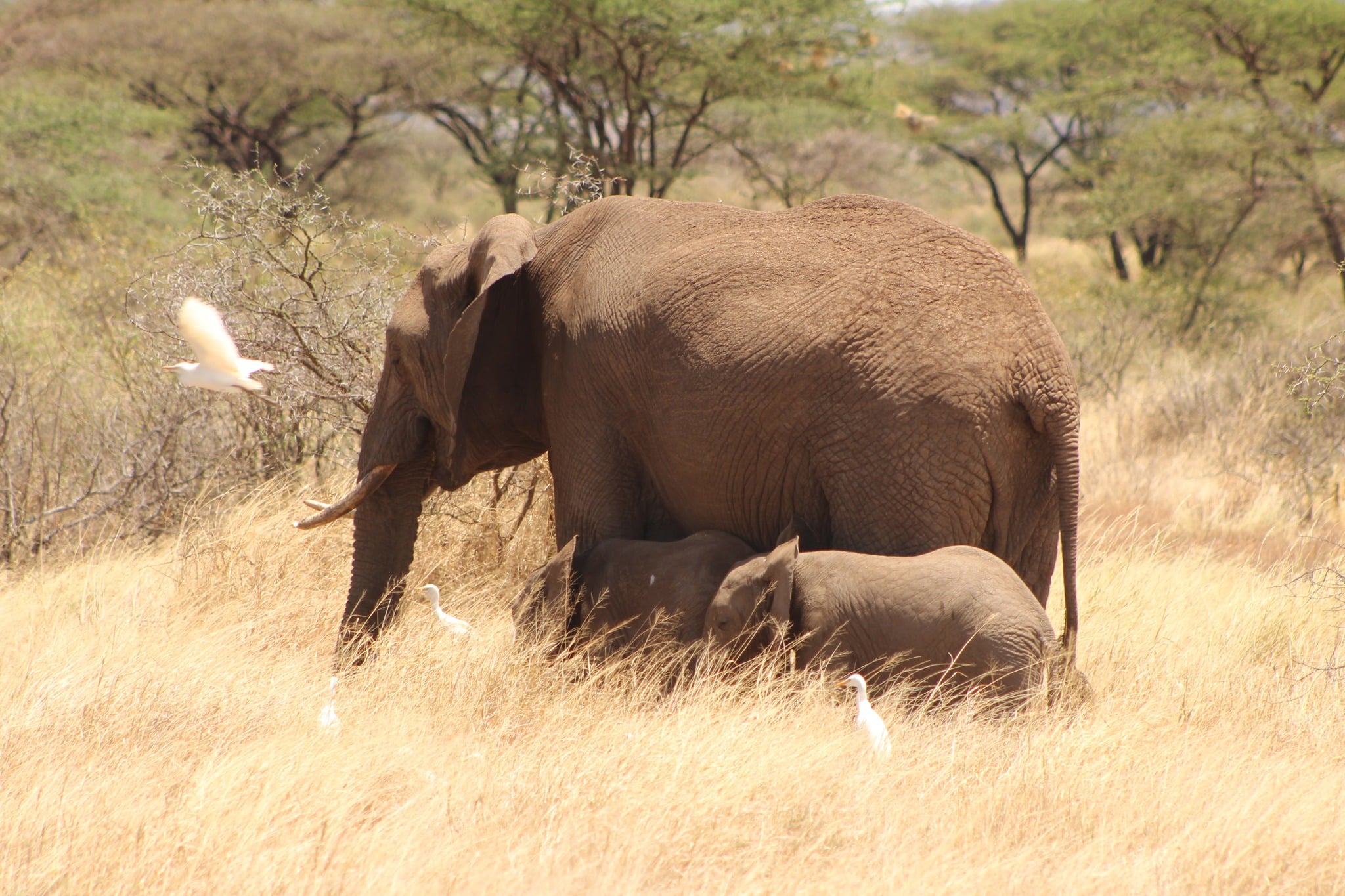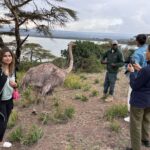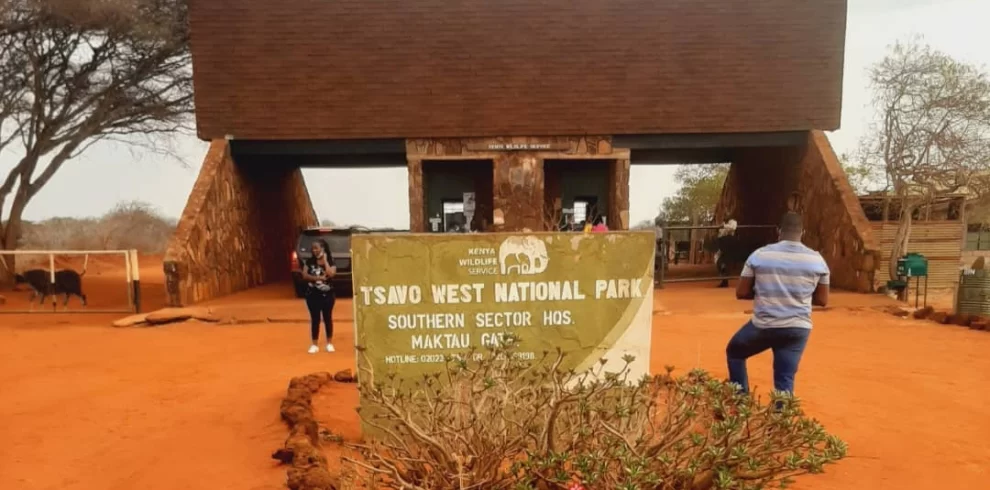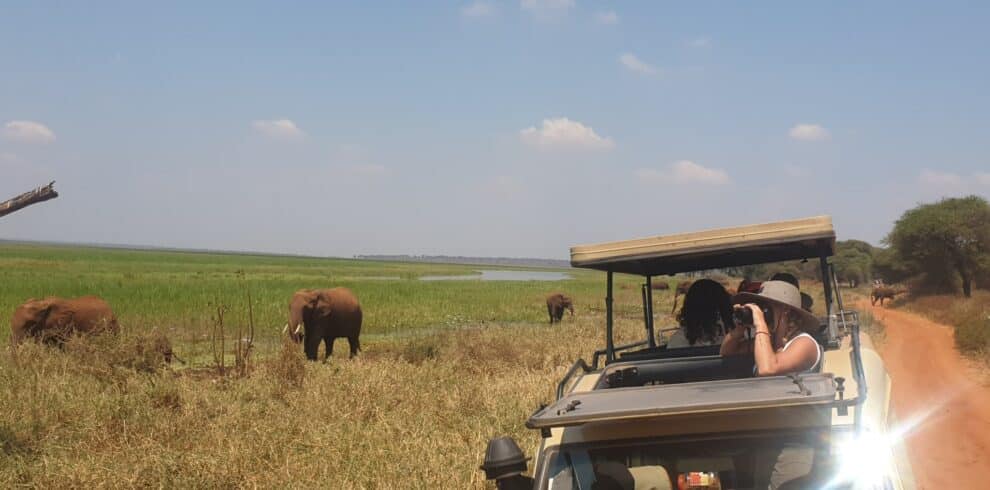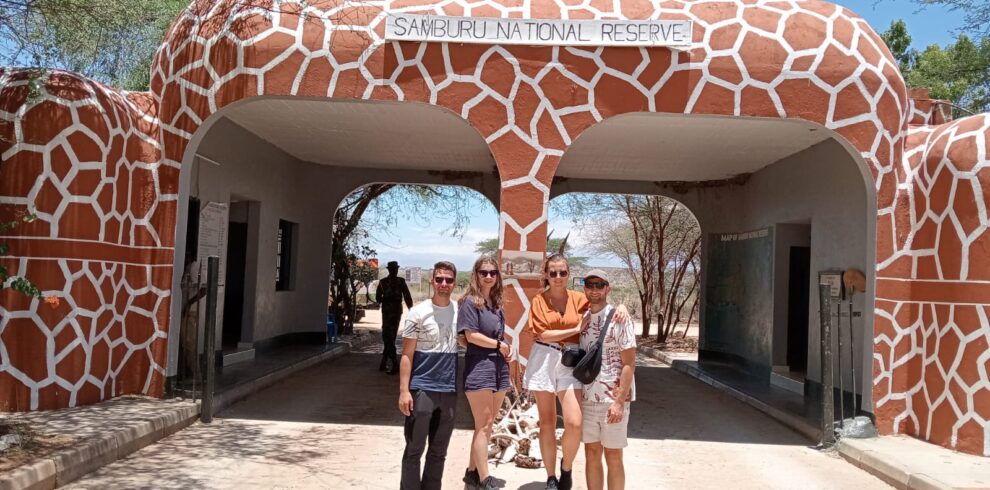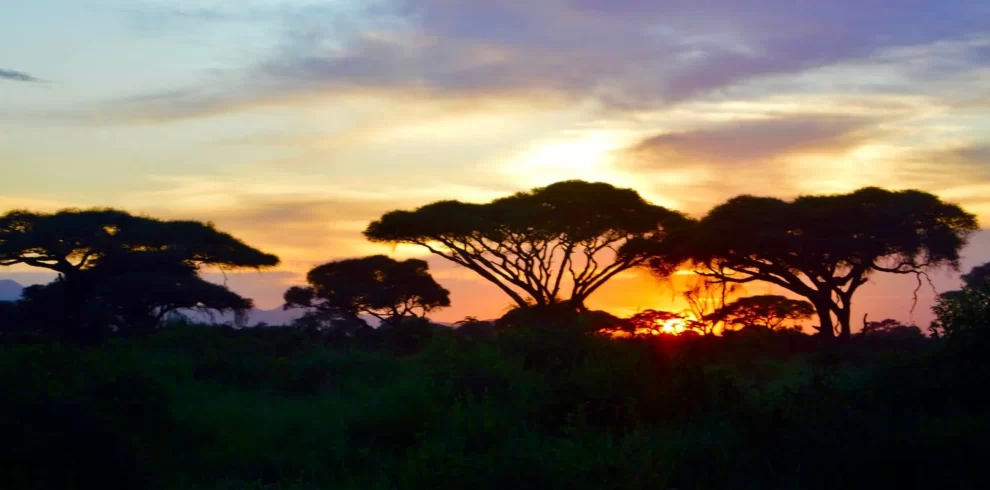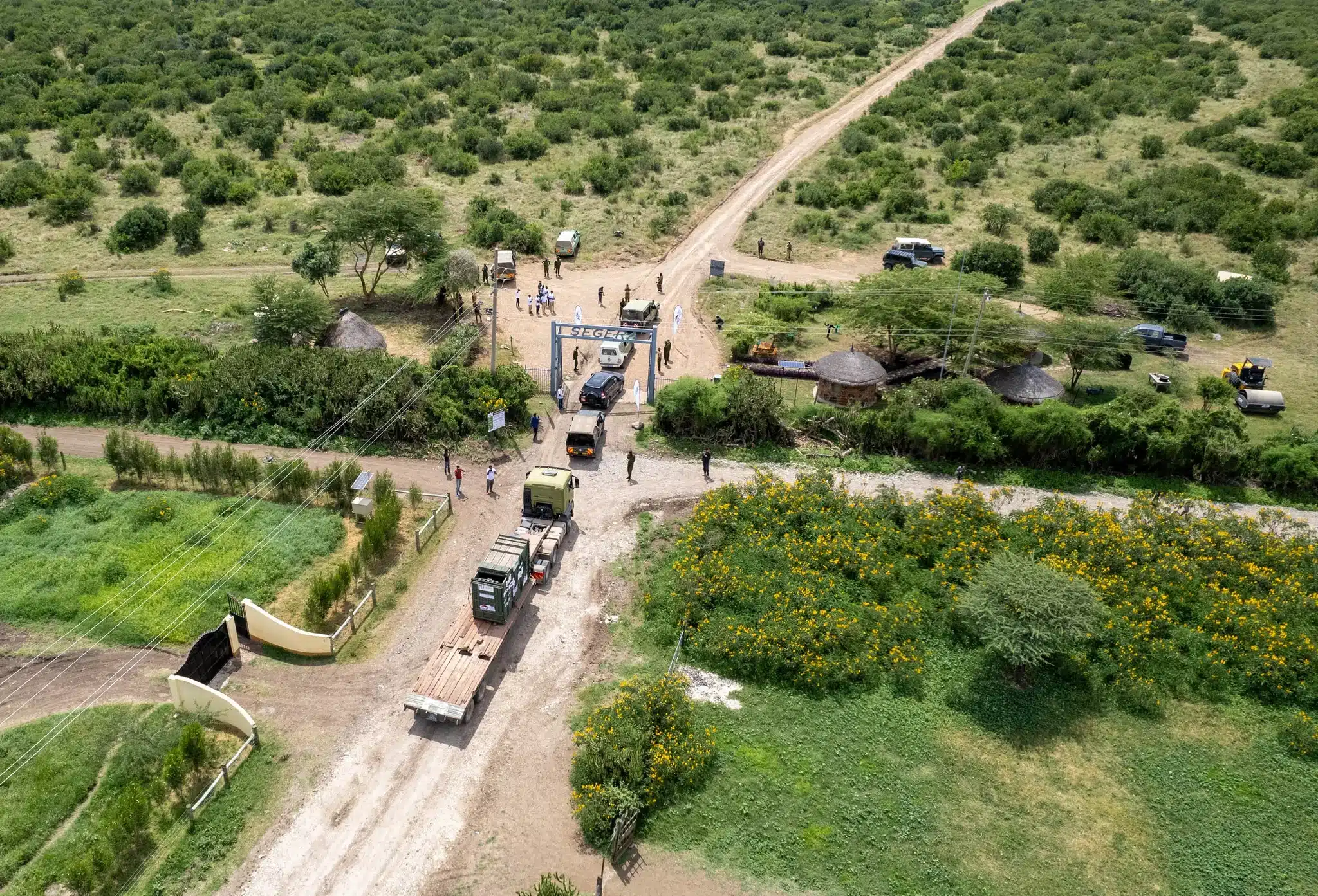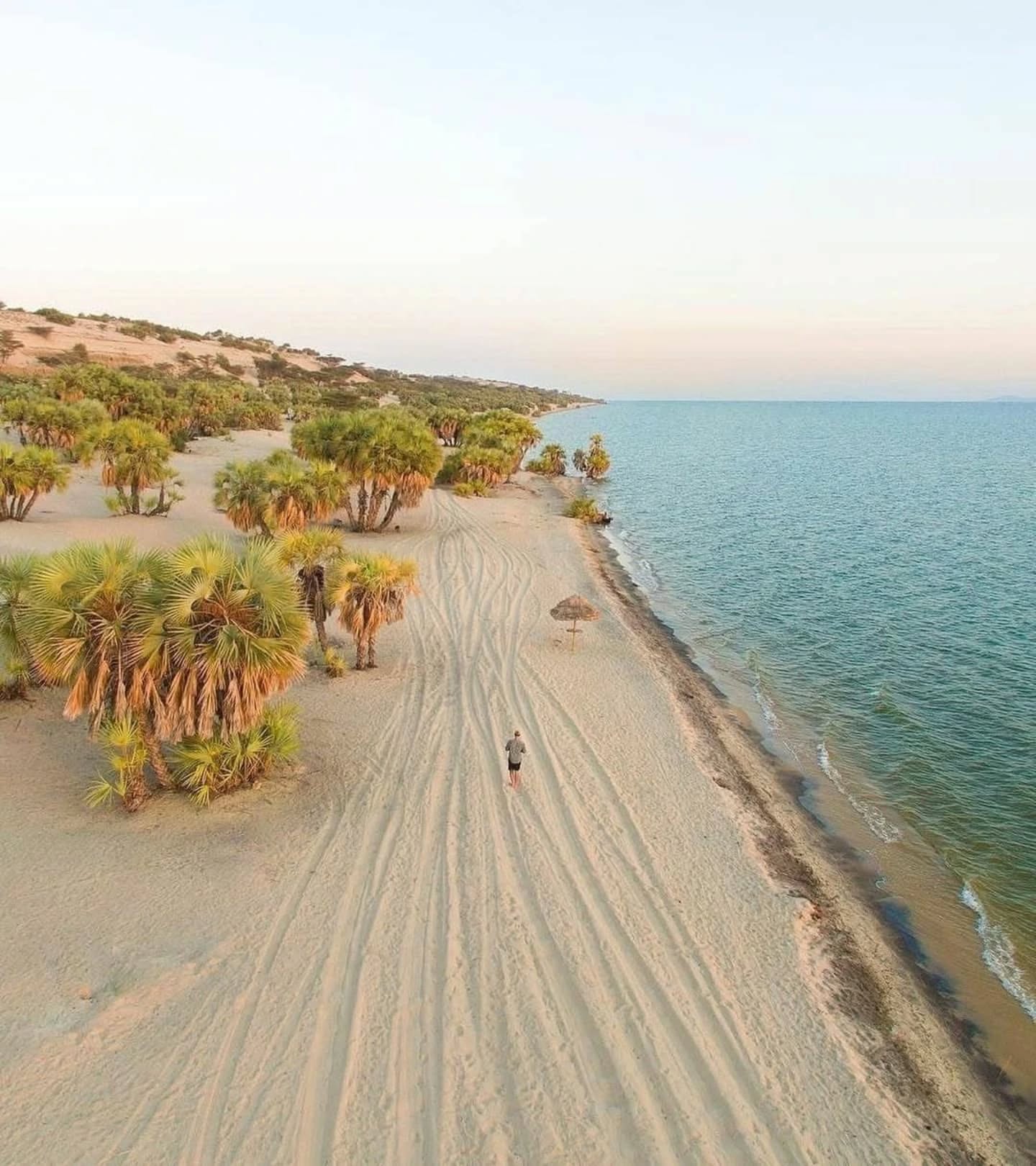On January 2, 2025, the Kenya Wildlife Service (KWS) shared an exciting discovery: a mother elephant was spotted with twin calves in the Shimba Hills National Reserve in Kwale County, near the Kenyan coast. Elephant twins are extremely rare, with only 1% of pregnancies resulting in twins. Most twin pairs are of the same gender, and the survival of both calves is unlikely due to the mother’s limited milk supply.
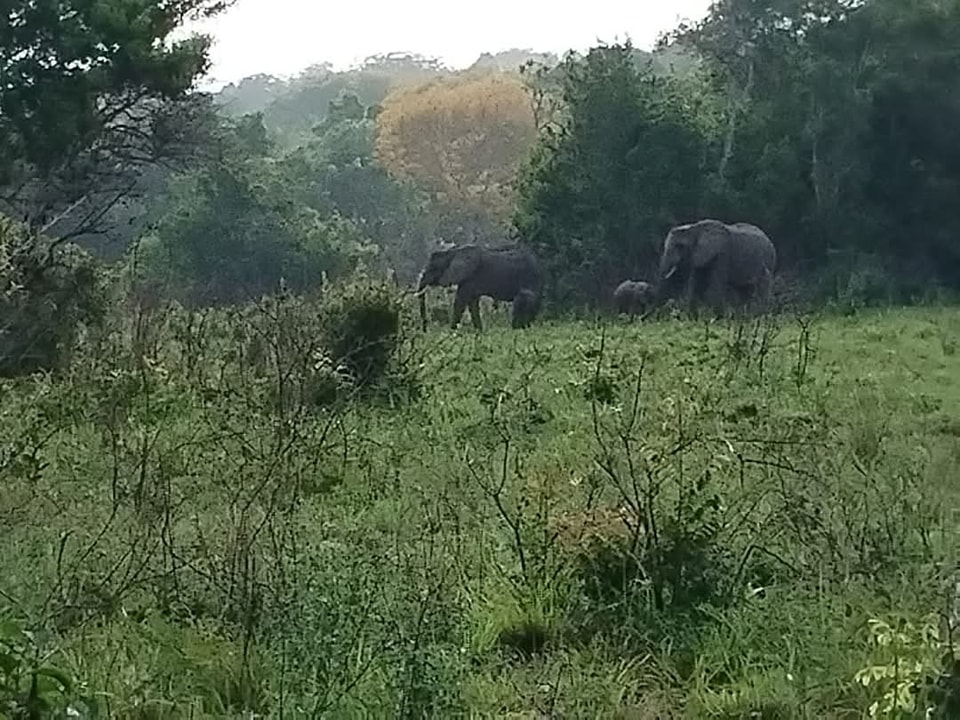
This marks the third set of elephant twins recorded in Kenya in just three years. The first pair, a male and female, was discovered on January 16, 2022, by guides at the Elephant Watch Camp (EWC), a luxury eco-camp in the Samburu National Reserve, located in Samburu County in northern Kenya. These guides, trained by Save The Elephants (STE), a conservation organization, are skilled at identifying individual elephants and their families within the park. The mother elephant, named Bora, was from the Wind family. Unfortunately, a severe drought followed, and the female calf sadly passed away in November 2022.
In November 2023, another pair of elephant calves, both female, was born at the same wildlife reserve. Save The Elephants announced the event. The mother elephant, Alto, is from the Clouds Family. The conservation group expressed optimism about the survival of the twins. Since then, researchers have reported seeing Alto’s twins regularly with the wider family. The calves appear to be in excellent health, strong, and thriving.
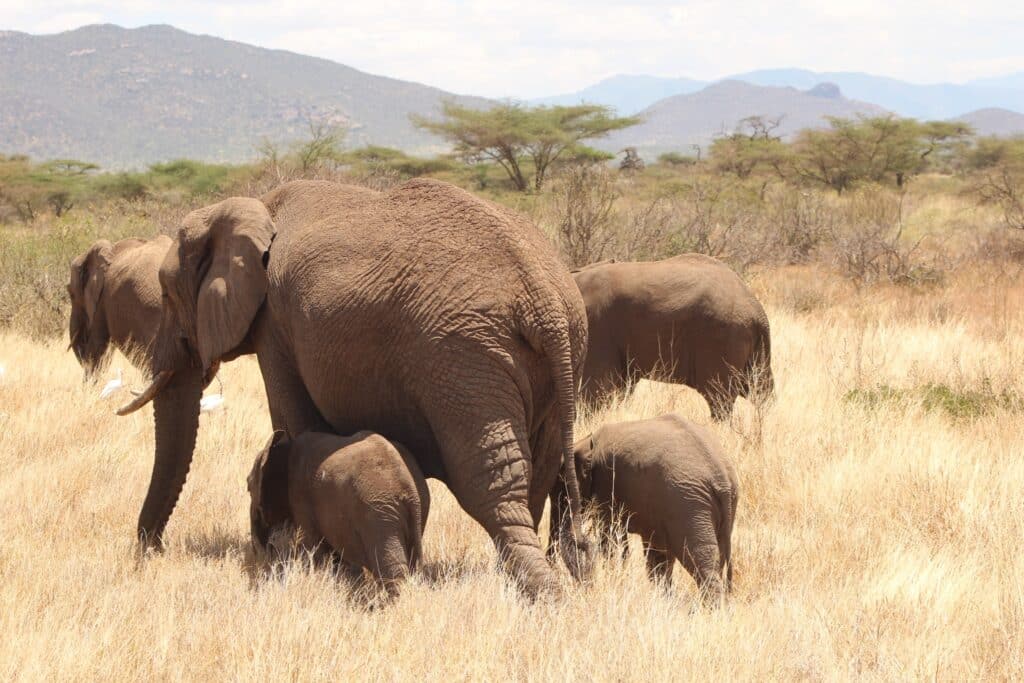
History of Elephant Twins in Kenya
The first recorded set of elephant twins was born to mother Estella in 1980 at Amboseli National Park. After a long wait of 38 years, the next set of twins was born in 2018. Therefore, the birth of three sets in such quick succession is truly unique. Estella’s twins, a male and a female, were named Equinox and Eclipse, respectively. Sadly, Eclipse passed away in 2017, but as of 2020, Equinox was still alive. Estella, their mother, passed away in 2006 at the age of 68. Both the African bush elephant and the African forest elephant have lifespans of 60 to 70 years, much longer than the approximately 48 years of the Asian elephant.
The 2018 twins, a male and a female, were born to a mother elephant named Paru, at the Amboseli National Park. Tragically, the female later suffered a back injury. The veterinarian decided against surgery, as the risks outweighed the potential benefits, especially since there were no signs of infection or suffering. Sadly, the female calf passed away at around 7 months of age.
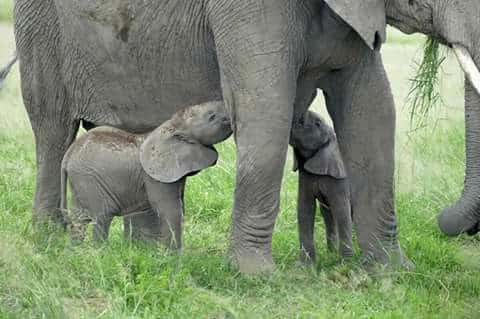
The third recorded set of elephant twins before 2022 was born in 2020 to a mother named Angelina, also at the Amboseli National Park. Their birth was quite unusual, with the male calf arriving on Thursday, February 6, 2020, and the female calf being born a few days later on Monday, February 10, 2020.
Why Are Elephant Twins so Rare?
Elephant twins are rare due to a combination of biological and ecological factors.
- Elephants have a gestation period of 18 to 22 months, the longest of any mammal, which allows for the efficient development of only one calf at a time.
- The immense nutritional demands during gestation and after birth make it difficult for the mother to sustain twins. As a result, elephants appear genetically predisposed to give birth to only one calf.
- Environmental factors also play a role in twinning, particularly in times of abundant food supply and reduced poaching threats. This may help explain the higher rates of twin births at the lush Tarangire National Park in Tanzania. A study conducted from 1992 to the early 2000s observed 14 sets of twins out of 291 births, with three sets born to a single mother.
Implications for Conservation
The birth of elephant twins is positive news for Kenya’s conservation efforts. According to the Kenya Wildlife Service (KWS), Kenya’s elephant population dropped dramatically from around 170,000 in 1979 to just about 16,000 in 1989, primarily due to the poaching menace.
However, the state conservation body has reported a steady increase in elephant population numbers, at times exceeding 5% annually. A 2020 census recorded 36,850 elephants, with a significant proportion—around 13,000—residing in Tsavo National Park in southern Kenya.
Book with Gemfinders Safaris
Gemfinders Safaris offers packages that take you deep into elephant territory. Book your safari with us today and get the chance to appreciate the conservation efforts dedicated to preserving these majestic giants for future generations. Our tours are affordable, customizable, and led by expert guides who will ensure you have the best experience.
Call/WhatsApp us at +254 742 324593 or +254 797 512036, or email safaris@ gemfinderssafaris.com or reservations@ gemfinderssafaris.com to start planning your safari.


